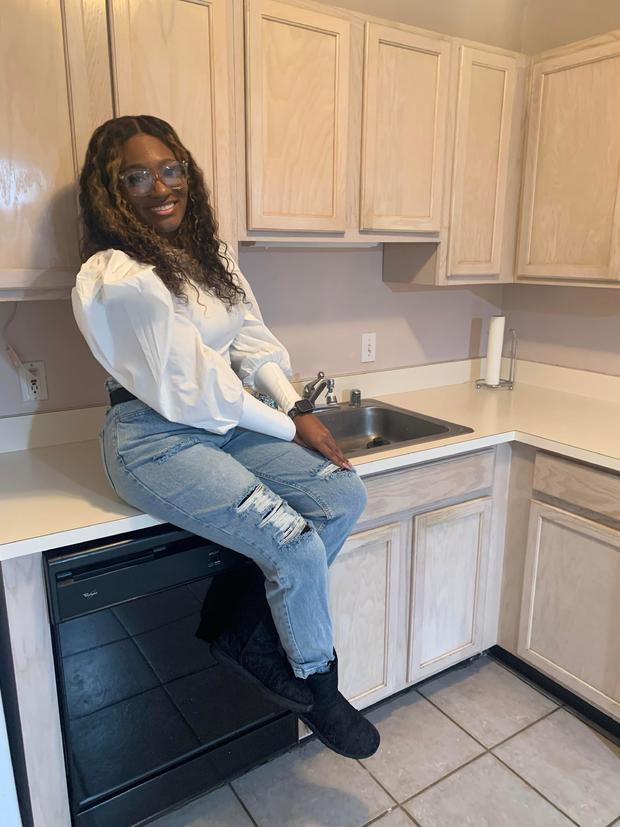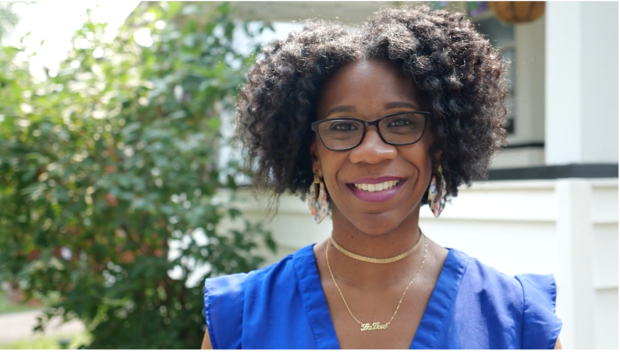Single women are racing ahead of men in homeownership. Here's why.
Kyla Wright's original plan was to complete her master's degree, move out of her parents' home and rent an apartment somewhere in Detroit. But once she started looking for rental units, her mother — a landlord — suggested buying instead.
Wright took the advice and, in December 2021, she bought a $99,000 home in the Detroit suburb of Southfield. Wright, now 25, is the only person in her social circle who owns a home. But on a national scale, her decision is becoming increasingly common.
Women who live alone, like Wright, own millions more homes than their male counterparts, despite typically earning less than men do.
Single women own roughly 10.7 million homes, compared to 8.1 million for single men, according to a recent analysis from LendingTree that looked at 2021 Census data.
That's a surprising statistic considering the financial hurdles women have historically faced, said Jacob Channel, LendingTree's senior economist and the author of the analysis. On average, for example, women earn 83 cents for every dollar a man makes.
The trend may have long-term financial implications for single Americans given that homeownership is often one of the most effective methods of building personal wealth. A typical homeowner who bought their home in 2011 accumulated $225,000 in housing wealth by 2021 on average, according to an analysis from the National Association of Realtors in 2022.
This gap exists in nearly every state in the U.S., LendingTree found.
Building wealth
The reasons for women's unequal homeownership vary by age group. Among older women, longer life expectancies are a factor, said Rutgers professor James Hughes, who studies demographics and housing.
"If women become a widow and the couple previously owned a house, most likely the homeownership shifted from male to female," Hughes said, noting that women are expected to live until age 81 on average, compared to 76 for men.
Earlier in life, women have a different motivation for pursuing homeownership, said University of Southern California professor Dowell Myers, who studies how demographics affect housing.
Younger women who are approaching the peak of their careers earn salaries nearly equal to men their age. They're well aware of the wage and wealth gap that persists between genders, and buying a home is one way they try to counter it, Myers said.
"They make an effort to try and keep up," he said. "Homebuying is a good investment and it means more to them personally than men."
That was true for Wright, who said having a long-term investment under her belt provided additional motivation to buy. Wright quoted her mother, who watches renters pay month after month without building home equity.
"The way she broke it down for me was this: 'They will rent from me for years and years and years, and the only thing they have to show for it is receipts,'" Wright said.
The same motivation pushed New York resident Jessica Lewis to buy a home in 2009. Lewis said she was looking for an affordable apartment in the wake of the 2008 housing crash — but quickly realized a mortgage on a home would be cheaper. With the help of a first-time homebuyers' program, she paid $64,000 for a three-bedroom home in Rochester, a move she now calls "the best decision I ever made."
"To me, it was a way of investing in myself rather than making someone else rich, like a landlord," Lewis, 37, told CBS MoneyWatch.
The role of a degree
Hughes noted that more women today are college-educated than men, which gives more of them the opportunity to buy a home on their own, since college degrees translate to earning more money later in life. "Women have more wherewithal now than, say, 20 years ago, even though that (wage) gap exists," he said.
Channel, of LendingTree, first noticed that women out-owned men in 2018. In the years that followed, the gender gap has persisted. However, the full effect of the pandemic homebuying frenzy still isn't clear, he noted, since the most recent Census data available is from 2021.
To be clear, a vast majority of owner-occupied homes in the U.S. belong to couples, Channel said. Women dominate ownership in what's left over, particularly in states like Alabama, Louisiana and South Carolina. Those Southern states typically have cheaper home prices, making it easier for a single income to handle mortgage payments, Channel said.
Delaware, Florida and Maryland have the widest gender gap among single homeowners, LendingTree found. In Florida, that translates into 262,000 more single women owning homes than men. Single men out-own homes in only North and South Dakota — states where the job market skews toward male-dominated professions, such as oil rigging and construction.


